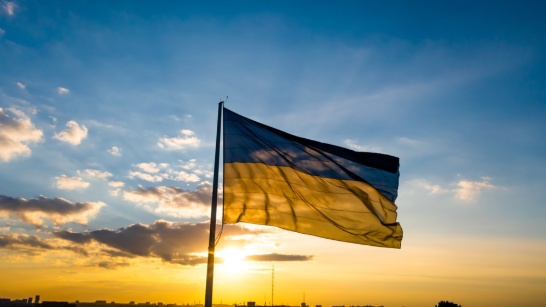
The CAS will support scientists whose research is at risk in their home country
21. 02. 2024
War, persecution, and human rights violations threaten scientists not only in Ukraine, but in other parts of the world as well. That is why the Researchers at Risk Fellowship programme is now open to scientists from all countries where freedom of research is not guaranteed. The second call was launched by the Czech Academy of Sciences in January, and applicants can apply until 29 February 2024.
David Honys, Chair of the International Affairs Council and member of the Academy Council of the CAS, explains that this year’s “run”, unlike the first round of the programme, is targeting not only Ukrainian researchers, but researchers from all countries with hybrid and authoritarian regimes in place or at risk of war. In total, there are 95 such countries. The Czech Academy of Sciences based its list on the Democracy Index 2022 (Economist Intelligence Unit).
“For obvious reasons, we have excluded Russia, Belarus, and China. Scientists from 92 countries – including Afghanistan, Iran, Mexico, and several Central American and African countries, as well as, for instance, Vietnam and North Korea – can apply for the fellowship,” Honys explains, adding that Ukrainian researchers who participated in the first call are eligible to apply again.
Eva Zažímalová, President of the Czech Academy of Sciences, confirms that strengthening and defending academic freedom is of great importance to our institution. In her opinion, science and research comprise an international organism: “By supporting researchers who cannot work in a safe and free environment, we are contributing to the advancement of human knowledge as a whole.”
Round 2 – the call now open to more countries
The second call for the Researchers at Risk Fellowship programme was launched by the Czech Academy of Sciences on 16 January 2024, with applications open until 29 February 2024. Funding is provided to researchers in the form of reimbursing personal expenses in the amount of CZK 720,000 per year for 24 months. Successful applicants will be announced by the Academy in March, and the scientists will be able to start working at the CAS institutes they applied to starting in April 2024.
“We have already registered a number of applications, as well as the CAS institutes’ interest in additional information, which is being provided by Magdaléna Jiráčková from the CAS Head Office. We know from experience that most applications arrive right before the deadline. At the moment, then, I dare not estimate how many we will end up receiving or from how many countries,” Honys adds.
As in the first call, applications are not submitted directly by the scientists from abroad themselves, but by the directors of CAS institutes. Researchers interested in participating in the programme should therefore contact the relevant institute of the Czech Academy of Sciences or contact the Division of International Cooperation of the CAS Head Office, which will then arrange the connection. EURAXESS also plays an important role. If the application is approved and the fellowship takes place, colleagues from the EURAXESS network will assist incoming researchers with the immigration process, providing them with personal assistance in dealing with the authorities and integrating into Czech society.

The first round of the call in 2022 focused on supporting Ukrainian researchers.
To help – as quickly as possible
When the first call was announced in 2022, the aim, or rather the wish, was for the Czech Academy of Sciences to support approximately fifty Ukrainian students and scientists – and it managed to achieve that. Sixty-eight applications were received from the CAS institutes, of which 67 were approved, as one was withdrawn before the committee hearing. A total of 14 of these approved fellowships did not take place, largely due to the fact that the scientists in question received support elsewhere or ended up staying in Ukraine. “In the end, we were able to conduct fifty-three fellowships. The Academy provided CZK 44.5 million in funding – CZK 16.9 million in 2022 and CZK 27.6 million in 2023,” Honys notes.
The immediate response of the CAS institutes facilitated the rapid launch of the programme. Among other things, it showed that various research departments and institutions in the Czech Republic and Ukraine had been communicating and cooperating even before the war. Thirty-one CAS institutes were involved in the first call, although not all of them implemented the fellowship. Ukrainian students and scientists participated in the activities of 24 institutes of the Academy. As Honys points out, most of them had one applicant, but there were also some with more than one. The Institute of Physics of the CAS had a record six Ukrainian research fellows and the Biology Centre of the CAS five new colleagues. Some of the fellowships even resulted in co-authored publications, which is an excellent outcome, considering their short duration.
The paths of the Ukrainian colleagues varied once the first round of the RISK fellowships was concluded. Some have stayed in the Czech Republic, continuing their research at our institutions. They are compensated from institutional funds or grants or have received funding from other sources – for instance, the IIE Scholar Rescue Fund Fellowship or the EMBO Solidarity Grant. Others have received fellowships such as the Volkswagen Stiftung or the MSCA4Ukraine Fellowship and are working as postdoctoral fellows at universities abroad.
Others have returned to Ukraine, not only to work at universities, but also ministries. When the fellowship ended, some of the CAS institutes involved tried to continue the collaboration at the institutional level – that is, with the relevant universities or research organisations in Ukraine. “Thanks to the RISK programme, we have made meaningful contact with outstanding individuals. The Ukrainian scientists will go on to apply the knowledge and research from some of their projects conducted in their host country back in Ukraine,” Honys says, highlighting the fact that some of the researchers even got involved in activities beyond the fellowship – for example, mentoring students at their given CAS institute or teaching pupils in schools and other social activities.
The scope of the fellowship programme, its exceptionally fast launch, and the successful placements have now given way to a second call. “This is one of few such programmes offered in this country, if not the first. We have taken inspiration from abroad, for example from the Austrian Academy of Sciences and other institutions. We believe that the second call will also be successful and will help additional researchers who still cannot freely conduct research in their own country,” Honys concludes.
Prepared by: Luděk Svoboda, External Relations Division, CAO of the CAS
Translated by: Tereza Novická, External Relations Division, CAO of the CAS
Photo: Shutterstock The text is released for use under the Creative Commons license.
The text is released for use under the Creative Commons license.
Read also
- Moss as a predator? Photogenic Science reveals the beauty and humor in research
- How does the Academy Council plan to strengthen the Academy’s role? Part 2
- How does the Academy Council plan to strengthen the Academy’s role? Part 1
- Ombudsperson Dana Plavcová: We all play a role in creating a safe workplace
- ERC Consolidator Grant heads to the CAS for “wildlife on the move” project
- A little-known chapter of history: Czechoslovaks who fought in the Wehrmacht
- Twenty years of EURAXESS: Supporting researchers in motion
- Researching scent: Cleopatra’s legacy, Egyptian rituals, and ancient heritage
- The secret of termites: Long-lived social insects that live in advanced colonies
- Two ERC Synergy Grants awarded to the Czech Academy of Sciences
The Czech Academy of Sciences (the CAS)
The mission of the CAS
The primary mission of the CAS is to conduct research in a broad spectrum of natural, technical and social sciences as well as humanities. This research aims to advance progress of scientific knowledge at the international level, considering, however, the specific needs of the Czech society and the national culture.
President of the CAS
Prof. Eva Zažímalová has started her second term of office in May 2021. She is a respected scientist, and a Professor of Plant Anatomy and Physiology.
She is also a part of GCSA of the EU.